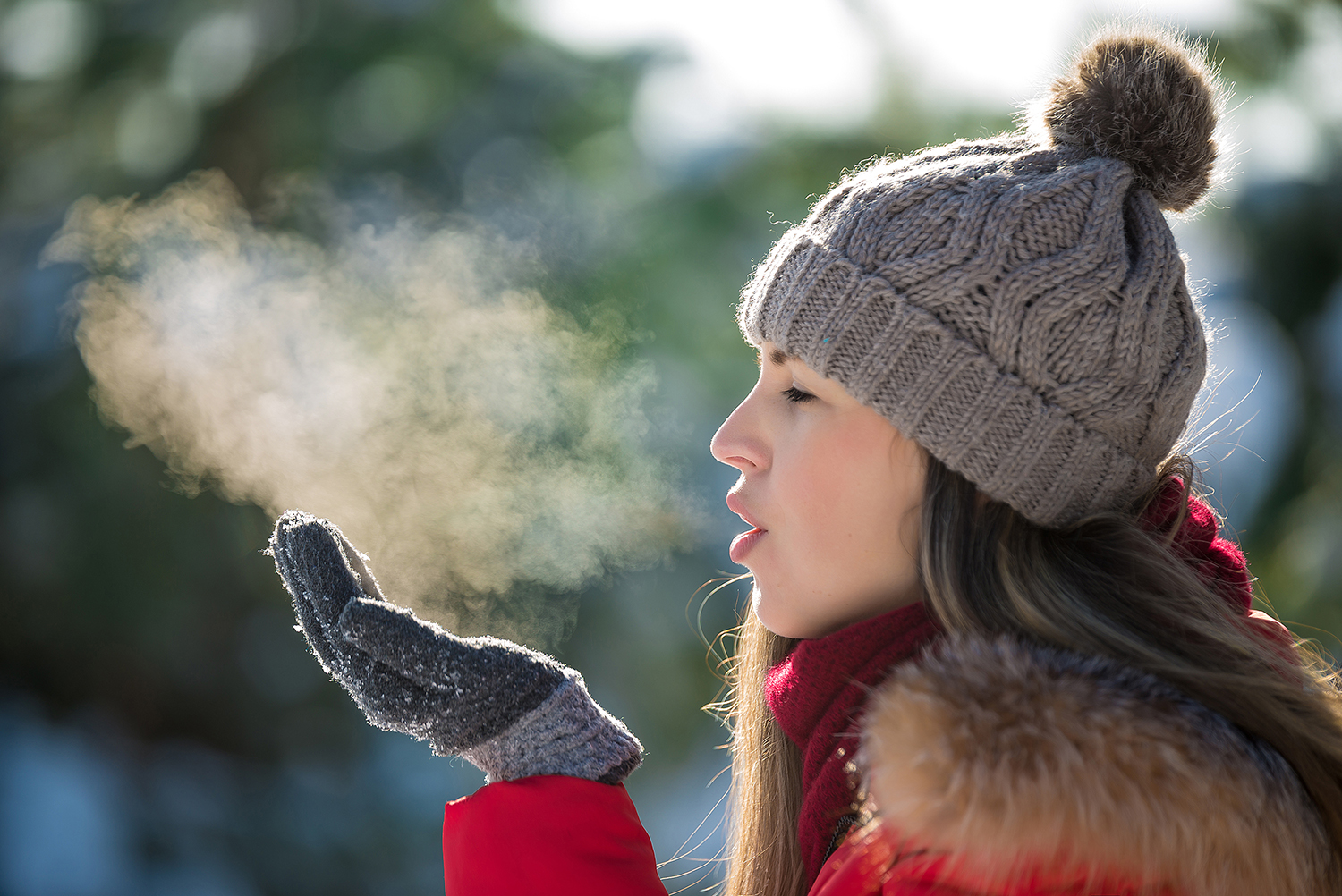International Bottled Water Association | NEWS RELEASE |December 18, 2020
Dry winter air contributes to dehydration in people
 Alexandria, VA – The simple act of breathing during the winter months can cause water loss in people, making it vital at this time of year to stay on top of your hydration needs and those of your loved ones, says the International Bottled Water Association.
Alexandria, VA – The simple act of breathing during the winter months can cause water loss in people, making it vital at this time of year to stay on top of your hydration needs and those of your loved ones, says the International Bottled Water Association.
Most people think dehydration is a hot-weather concern as we typically lose body water from sweating during heat and exercise. But surprisingly, the dry winter air that we breath––both indoors and outside––is significantly less humid than summer air. This means each time we exhale, moisture from our lungs leaves our body.
In addition, people also tend to not notice sweat in winter months as it evaporates quickly due to the dry air. And since the temperatures tend to be cooler, we’re less likely to feel thirsty.
All of these conditions—breathing dry air, not noticing sweat, and not feeling thirsty—create a perfect storm for dehydration to set in, for both people and pets.
“A 1-2 percent loss in body water can affect a person’s mood, energy level, and mental awareness, and yet they might not realize that dehydration is making them feel this way,” says IBWA Vice President of Communications Jill Culora.” A simple glass of water can help with mood, energy and cognition.”
Maintaining adequate hydration at this time of year is tricky because the warning signs of dehydration can be subtle or not at all apparent. This is why it’s important to maintain good, healthy hydration habits year-round by regularly consuming water – from the tap, filtered, or bottled – throughout the day and night.
“In the winter, people are less likely to feel thirsty, so it’s important to be mindful about regularly consuming water in order to stay well-hydrated throughout the day,” says Culora. “If you drink a lot of water during the summer, that’s a good habit you should maintain during the colder months of the year.”
“If you can see your breath in the cold, dry air – that’s water leaving your body. People don’t notice sweat nearly as much at this time of year, and performing the same, normal, everyday activities without consuming water can lead to mild dehydration.”
During the holiday season, bottled water provides the perfect beverage choice for those who want to avoid or moderate calories, caffeine, sugar, artificial colors or flavors, alcohol, and other ingredients.
Whether as a replacement for high-calorie beverages or as a nonalcoholic drink option, bottled water offers consumers a refreshing, hydrating, and convenient beverage that provides consistent safety, quality, and good taste. And with the variety of types available – from spring and purified, to mineral, to sparking bottled water – consumers have many choices to suit their specific needs and preferences.
Drinking adequate amounts of water also helps your skin, as the cold leaves it dry and parched.
Hydration at night also remains critical. During overnight sleep, a person can lose as much as a pound of weight due to sweating and exhaling water vapor (www.npr.org/sections/krulwich/2013/06/19/193556929/every-night-you-lose-more-than-a-pound-while-youre-asleep-for-the-oddest-reason).
Going to bed even mildly dehydrated can disrupt your sleep, according to the National Sleep Foundation. “Dehydration causes your mouth and nasal passages to become dry, setting you up for sleep-disruptive snoring and a parched throat and hoarseness in the morning. And a lack of pre-bed fluids can also lead to nocturnal leg cramps that may keep you awake. In addition to the frustration of fragmented sleep, being dehydrated during night can compromise your alertness, energy, and cognitive performance the following day.” (sleepfoundation.org/sleep-topics/the-connection-between-hydration-and-sleep)
“Like at any other point during the year, bottled water is an excellent healthy hydration choice for those trying to stay hydrated or avoid calories, caffeine, sugar intake, artificial colors, or flavors and other ingredients,” says Culora. “Consumers continue to increasingly choose refreshing, healthy, hydrating, and convenient beverages such as bottled water that provide consistent safety, quality, and good taste.”
More information about bottled water can be found at www.bottledwater.org.
# # #
Media Contact:
Jill Culora
703-647-4609
jculora@bottledwater.org
The International Bottled Water Association (IBWA) is the authoritative source of information about all types of bottled waters, including spring, mineral, purified, artesian, and sparkling. Founded in 1958, IBWA’s membership includes U.S. and international bottlers, distributors and suppliers. IBWA is committed to working with the U.S. Food and Drug Administration (FDA), which regulates bottled water as a packaged food product, to set comprehensive and stringent standards for safe, high-quality bottled water products.
In addition to FDA regulations, IBWA member bottlers must adhere to the IBWA Bottled Water Code of Practice, which mandates additional standards and practices that in some cases are more stringent than federal and state regulations. A key feature of the IBWA Bottled Water Code of Practice is a mandatory annual plant inspection by an independent, third-party organization.
